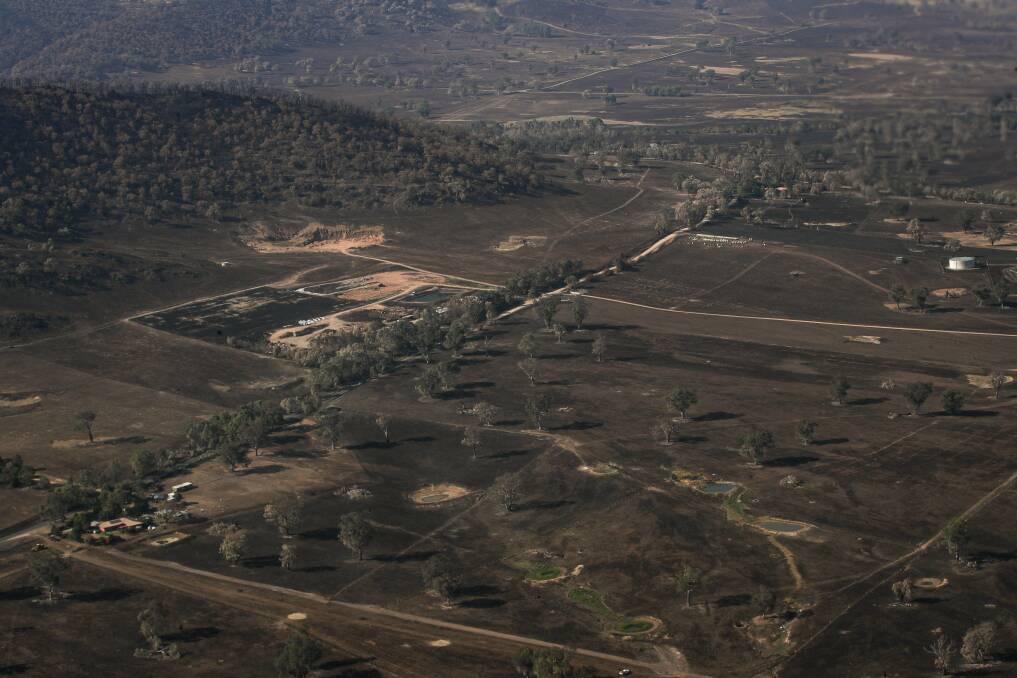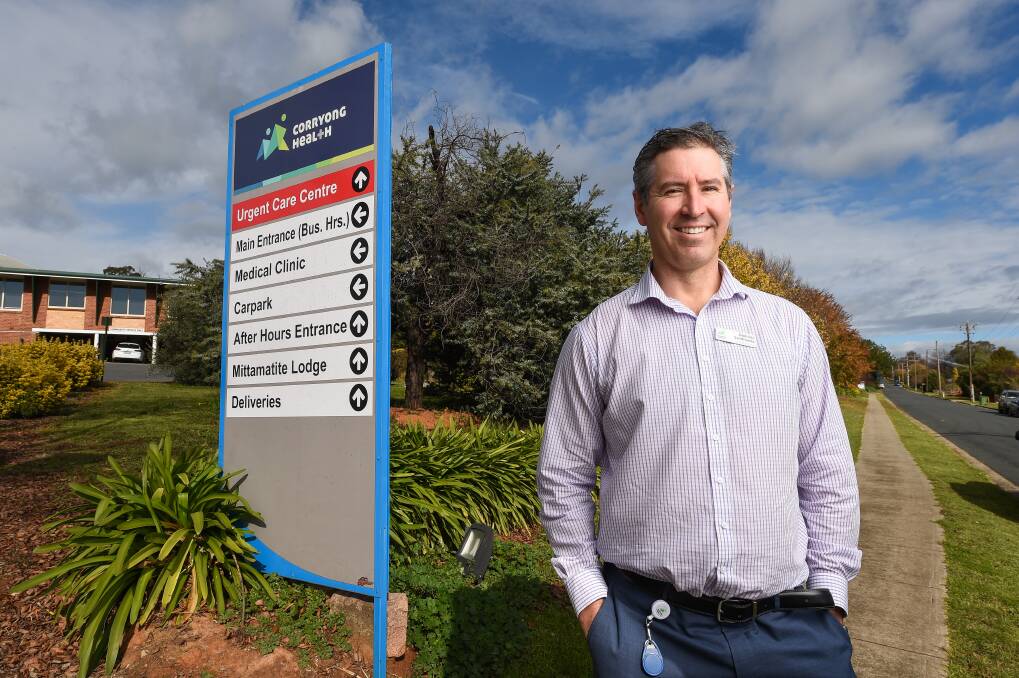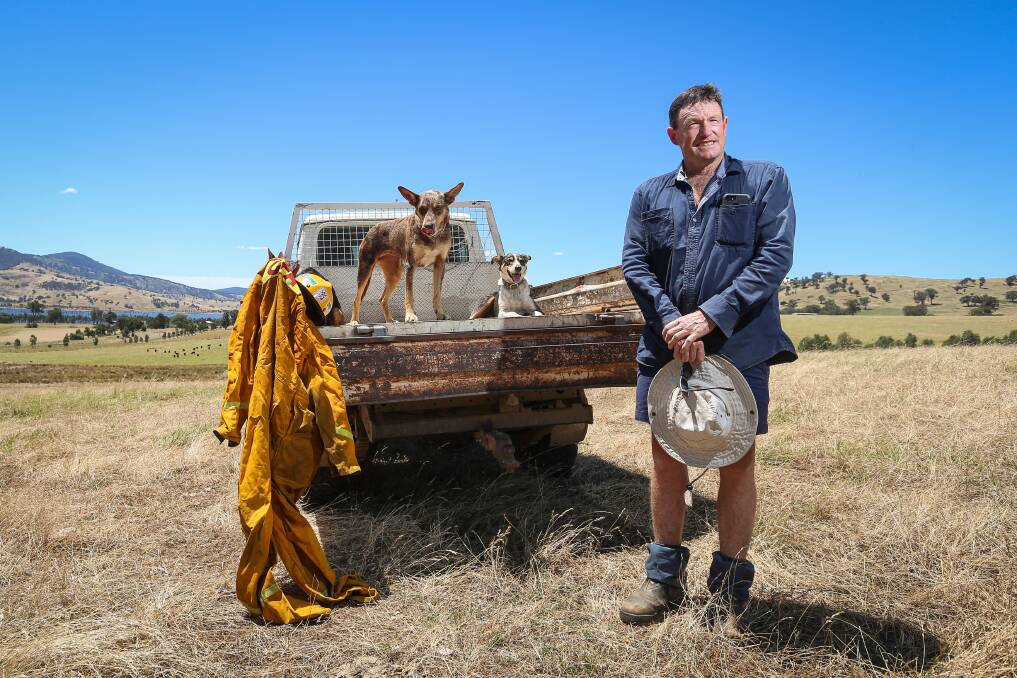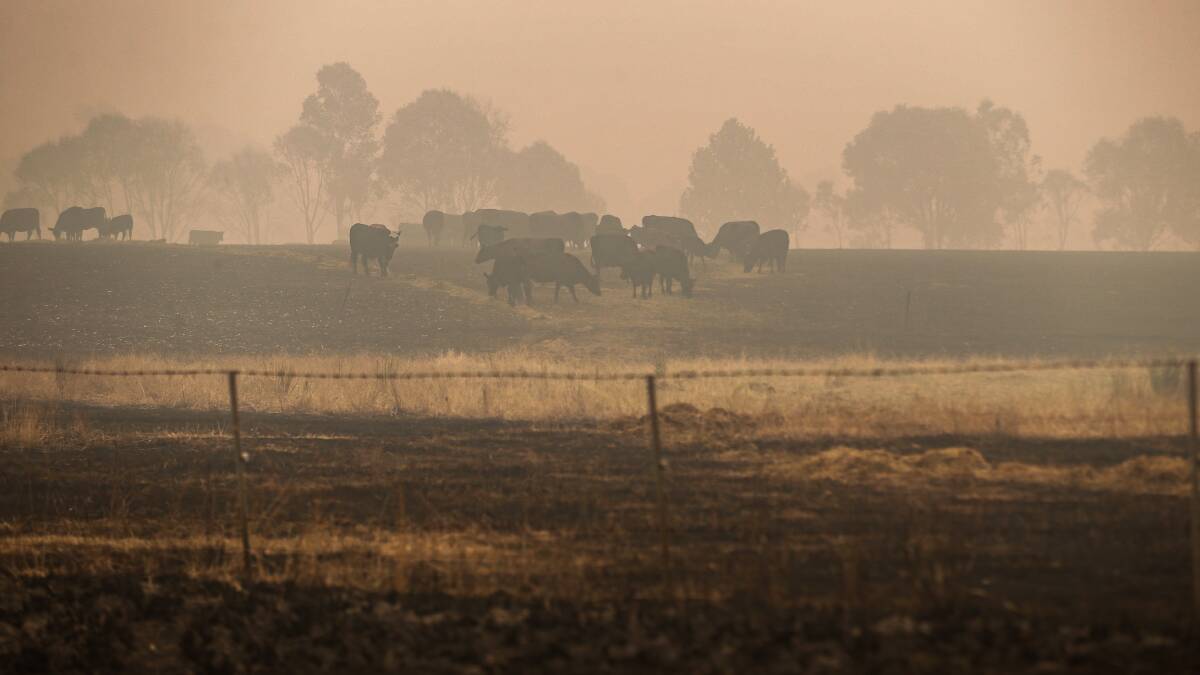
Upper Murray community leaders fear the region is no more prepared for a major bushfire event than it was two years ago.
Subscribe now for unlimited access.
or signup to continue reading
In a senate inquiry into the 2019/2020 Black Summer bushfires, leaders from Alpine, Indigo and Towong shires as well as Corryong Health expressed concern limited resources and funding had hampered fire preparedness.
Corryong Health chief executive Dominic Sandilands said there was widespread frustration in the community more had not been achieved since Black Summer.
He said it appeared to him state government changes to the bushfire management plan which took the emphasis off councils and onto a group of representatives had resulted in a lack of preparedness.
He said he had only been involved in one meeting of the group.
"There is general widespread frustration that the emergency management planning hasn't taken in the improvements and changes that should have happened straight after the bushfires," he said. "In other words there hasn't been enough done to give confidence to the community that we will be better placed to respond to a bushfire now compared to when we encountered the Black Summer fires.
"The bushfire preparation time is now, and this is the time we've missed the boat, this should have been done three or four months ago not now."

The trio of council representative said small rural shires are not equipped or funded to solely handle bushfire responses and preparedness.
Alpine Shire Council acting chief executive William Jeremy said over the years a lot of responsibilities, including bushfire preparedness tasks, had been shifted from the state government to local councils but funding only covers limited resources.
"We have limited income and infinite demands on our delivery," he told the committee.
Mr Jeremy said the ongoing funding received by the shire only covers a part-time emergency management coordinator.
He said given the expected increase in severity and frequency of bushfires, councils need more funding for resources on an ongoing basis "to support community in preparedness in a more consistent way".
Towong Shire mayor David Wortmann said having lived through Black Summer, council was acutely aware of the requirements on it during a disaster.
"The capacity of small councils like Towong is a major concern," he said.
"If we have another fire season like 2019/20 we are certainly more aware of what would be required of council, but there are still concerns about the level of resources and formal agreement systems and structure to support the delivery of council requirements."
Cr Wortmann said unlike council areas with large population increasing rates by one per cent generated little additional income, which made funding recovery very difficult.
IN OTHER NEWS:
He also and highlighted they were bound by the Victorian rate cap on rises and called for the Commonwealth's requirement that 30 per cent of the financial assistance grants be distributed based on council population be scrapped.
The mayor said they never envisaged how much a fire would impact staff in the area.
Cr Wortmann said many staff had to defend their own properties and families in the face of fires so couldn't undertake council work like grading.
"We did not have the capability to stand up to a disaster like this," he said.
Cr Wortmann highlighted the ongoing shortcomings on NBN and communications in the region, including the lack of compatibility between state fire service communications.

Indigo director of community and economic development Mark Florence said because of Towong's size and resources Indigo and other councils stepped in to assist them set up relief centres and tackle other aspects of the 2019/2020 bushfire response.
He said that fact does not reflect on Towong but on the lack of ability small shires have to resource emergency management.
"The majority of fires in that period took place isolated small rural shire locations, they didn't take place major regional cities or state capitals," he said.
"All the onus fell on local government."
He said the on-the-ground support from government was "quite lacking" during the relief and recovery phase of the fires.
Mr Florence said Indigo staff were concerned if the fires threatening their shire took hold, they would have to either abandon Towong or spread their resources thinly across both regions.
"There's a significant gap [in the] ability of small rural shires to be able to cater for the responsibilities that keep being landed on them," he said.
"It's just foolish to think local governments particularly small rural shires can continue to accept all the ongoing demands being placed on them by different levels of state and federal government."
Indigo Council chief executive Trevor Ierino said smaller shires were 'hammered and swamped' by the needs of the community during emergencies.
"We're under-resourced at the best of time," he said.
The councils and health service also encountered challenges during the fire due to the number of incident control centres being run in the region.
Mr Jeremy said on the ground the Ovens Incident Control Centre worked well.
"What didn't work so well was the interface between local control and regional [control]," he said.
"There were disconnects between whats happening on the ground led by the local response and the regional understanding whats happening led out of Benalla."
There was also a lack of clarity around when and how recovery agencies handed over responsibility to council as they transitioned from the relief to recovery phase of the disaster, Mr Jeremy said.
Mr Sandilands said the health service was completely unprepared to evacuate its residential aged care facility.
"It was always stay and defend because you don't want to relocate elderly clients unnecessarily," he said of their bushfire plan.
"The transfer of clients when they [have] high care needs is very challenging and can result in death and so most of the planning had been around maintaining clients in the residential aged care facility."
He said the evacuation of the town meant they did not have enough staff, nor was there a fire truck at the facility which they had expected in their bushfire plan.
"One of the greatest issues we faced throughout the fire was the step up to the disaster declaration resulted in decisions being made that weren't factoring local context," Mr Sandilands said.

"The control room and multiple different emergency management groups - of which there were one running in Corryong, one running in Albury, one running in Wodonga and also a control room running out of Wangaratta - so there were all these different groups meeting very frequently almost daily during the two week bushfire period but there was a lot of confusion between those groups.
"And the ultimate decision when the disaster declaration came through, decisions were being made which weren't considering me as a CEO of the health service, particularly around the evacuation orders."
Mr Sandilands said the initial response was filled with "utter confusion with multiple groups and unclear delegations particularly when the declaration was called."
This confusion was exacerbated by the lack of phone reception in the region.
After listening to the testimony of the three shire representatives Senator Tim Ayres asserted there was no confidence in the community that the issues seen in the 2019/2020 had been resolved nor that the preparedness required had been undertaken.
The senator then asked the representatives "We're still a long way behind aren't we?"
All three assented.
Cr Wortmann suggested the government could form a fly-in staff to create surge capacity in small rural shires and help them manage disasters and set up relief centres. Mr Florence supported the suggestion.
Mr Jeremy said the region was facing a 'very significant issue' as many businesses were unable to secure insurance since the bushfire.
"The areas that were most significantly impacted under risk are really struggling to be able to secure insurance and where they are able to secure insurance they're seeing premiums that are on 300, 400 per cent what they were prior to the bushfires," he said.
"What we're concerned about is seeing business failure, we're concerned about seeing businesses that are heading into potentially a bushfire season that are potentially under-insured and we're seeing businesses that won't start or expand because some of the impacts and the inability to get insurance."
Our journalists work hard to provide local, up-to-date news to the community. This is how you can continue to access our trusted content:
- Bookmark https://www.bordermail.com.au/
- Make sure you are signed up for our breaking and regular headlines newsletters
- Follow us on Twitter: @bordermail
- Follow us on Instagram @bordermail
- Follow us on Google News.


